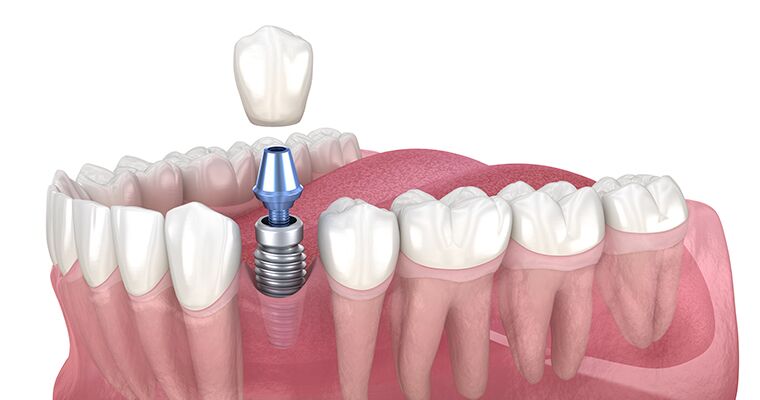Are you looking to know Are Dental Implants Permanent? then read this article to find out Are Dental Implants Permanent

A dental implant is an artificial structure used to replace a missing tooth. It is placed into the jawbone, acting as an artificial root, and a crown is attached on top. Implants are made to look and function like natural teeth. In most cases, they last for many years if properly cared for.
How Long Do Dental Implants Last?
Dental implants are made to be permanent because they fuse with the jawbone through a process called osseointegration. If you’re searching for dental implants near me, you’ll find that this bonding makes the implant strong and stable. While the implant itself can last a lifetime, the crown attached to it may need to be replaced after about 15 to 20 years due to normal wear and tear.
Types of Dental Implants
There are two main types: endosteal and subperiosteal.
Endosteal implants are the most common. They are shaped like small screws and placed directly into the jawbone. After healing, a crown is attached to complete the tooth replacement. Sometimes, extra procedures like bone grafting or a sinus lift are needed to strengthen the bone before placement.
Subperiosteal implants are placed under the gums but on top of the jawbone. They are used when there isn’t enough bone for an endosteal implant and when a person cannot or doesn’t want a bone graft.
Mini Dental Implants
Mini dental implants are smaller versions used in areas with less bone or to support dentures. They are less invasive and designed to last long, though research on their long-term success is still limited.
Factors Affecting Implant Lifespan
While implants can last decades, some factors can cause them to fail:
Poor oral hygiene: Plaque buildup can cause gum infections and bone loss around the implant.
Insufficient bone: A Weak or thin jawbone can make the implant unstable.
Smoking: Slows healing and increases implant failure.
Teeth grinding: Can cause pressure and damage to the implant.
Health conditions: Diabetes, osteoporosis, or weak immunity can affect bone healing.
Medications or radiation therapy: They can reduce bone strength.
Inexperienced surgery: Poor placement or early crown attachment may lead to failure.
If an Implant Fails
A failed implant may cause pain, swelling, or movement. The gums may become red or bleed. The dentist can remove the implant using local anaesthesia. Sometimes, it can be replaced after the area heals. If bone loss has occurred, a bone graft might be needed first. If replacement isn’t possible, other options like bridges or dentures can be used.
Summary
Dental implants are a long-term solution for missing teeth. They fuse with the jawbone to provide a strong, natural-looking result. With good oral hygiene, a healthy lifestyle, and regular dental visits, implants can last a lifetime and keep your smile strong and confident.